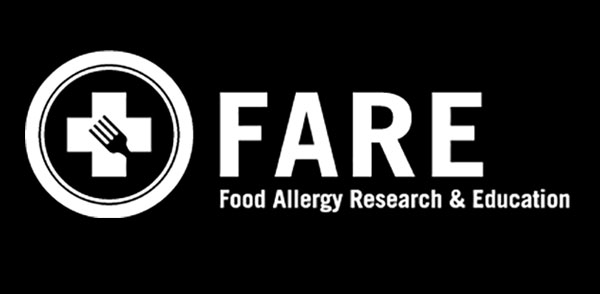 For as much as is known about food allergies – that they are potentially life-threatening and affect millions of Americans of varied ethnicity, socioeconomic background and gender — there are too many unknown questions for a problem of this magnitude. Food Allergy Research & Education (FARE) is leading efforts to answer these questions by co-sponsoring a study by the Institute of Medicine (IOM) on food allergy, titled ‘Food Allergies: Global Burden, Causes, Treatment, Prevention and Public Policy.
For as much as is known about food allergies – that they are potentially life-threatening and affect millions of Americans of varied ethnicity, socioeconomic background and gender — there are too many unknown questions for a problem of this magnitude. Food Allergy Research & Education (FARE) is leading efforts to answer these questions by co-sponsoring a study by the Institute of Medicine (IOM) on food allergy, titled ‘Food Allergies: Global Burden, Causes, Treatment, Prevention and Public Policy.
Critical issues including food allergy prevalence, the impact of food allergy on families and communities, and understanding of food allergy as a disease and in diagnostics, treatment, prevention and public policy will be among the issues examined by a committee formed by the IOM, the health arm of the National Academy of Sciences. The IOM is an independent, nonprofit organization that works outside of government to provide unbiased and authoritative advice to decision-makers and the public.
‘We have learned much about food allergies over the last two decades — during which FARE has remained a dedicated source of support for millions of Americans who are managing this disease — but many key questions remain unanswered, said James R. Baker, Jr., MD, CEO of FARE. ‘Food Allergy Awareness Week is a fitting time to announce the launch of this consensus study, which when completed will serve as a comprehensive report on the state of food allergy in our country and will help raise awareness and provide essential information toward guiding future education, advocacy and research efforts.
Among the key questions being considered by the consensus study committee:
- Why are food allergies more common today than in the past? What are the implications of current trends in prevalence?
- What are the key prenatal/early life determinants of food allergy?
- Why are some individuals allergic to a single allergen while others to multiple allergens?
- Are there ways to improve diagnosis?
- What research gaps need to be filled in order to provide better guidance to healthcare providers and policy-makers?
‘We are pleased that FARE along with governmental entities such as the National Institutes of Health, the U.S. Department of Agriculture and Food and Nutrition Service, and other groups have supported this study that will examine the determinants and impacts of this significant public health issue in order to provide better guidance and create safer environments, said Victor J. Dzau, president of the IOM.
The consensus study is expected to take approximately 16 months to complete.
For more information about FARE and food allergies, please visit www.foodallergy.org.
by Andrea Gonzalez
posted 05/19/15














